
GamingBolt recently got the chance to speak to Alex Preston, who is the Lead Designer, Animator and Secondary Programmer of Hyper Light Drifter. Hyper Light Drifter is an upcoming 2D action RPG that is set for release this year. The game is heavily inspired by The Legend of Zelda: A Link to the Past and Diablo, combining elements from both franchises.
Check out our full interview with Alex below.
Pramath Parijat: Okay, so I did want to start out by saying that A Link to the Past is one of my favorite games of all time, probably my favorite, so that makes me look forward to Hyper Light Drifter that much more, since it seems to channel it so much.
Alex Preston: Oh, great!
Pramath Parijat: So I did want to ask you, Hyper Light Drifter, there’s a bit of A Link to the Past and there’s a bit of Diablo- obviously these are both your inspirations, and over the years, they’ve each been channeled by a ton of other games. But what prompted you to fuse both of them together, put them in the same game?
Alex Preston: Well, I love both of them a lot, and I figured that they would work, the fusion would work.
Pramath Parijat: Link to the Past and Diablo, together?
Alex Preston: Yeah.
Pramath Parijat: So far you’re making a convincing case.
Alex Preston: No, I think that there are elements in both that you can draw from, and make something cohesive. We’re not throwing stuff disjointedly at the wall and seeing what’s sticking, it’s more like, we’re taking inspiration from both of them, so it’s more like the things that work in both of those games, and then seeing if they would function together properly.
"Combat is more in line with character action games, really. It’s very fast paced and very intentional. And let’s face it, A Link to the Past is pretty clumsy with its combat, it’s pretty limited. And Diablo, Diablo is just click click click, whereas this actually requires some strategy."
Pramath Parijat: Okay, yeah. So I guess one of the issues is that a lot of indie games, and just games these days in general, really, try to look all retro. There’s this retro graphical artstyle, and while, sure, it was a bit refreshing a few years ago, there’s been a bit of a pushback against it recently. Every indie game that’s announced seems to be sporting the retro style, so it’s sort of easy to see why. So is that something you’re aware of? I know you have some great sprite art and design, but is that something you have in mind?
Alex Preston: I think there’s a difference between retro and pixel art, and I think our game is intentionally not retro, it’s pixel art. The difference being, retro consciously and actively decides to stick to rigid standards to the past, and stay within them, while we’re taking that limited canvas and doing things that were simply not possible before.
Pramath Parijat: Yes, definitely. It is really, really pretty! What was the inspiration for the sprite design?
Alex Preston: I don’t know, actually! I mean, I have a lot of sources, a lot of artists I draw inspiration from, old anime and stuff like that. Depends on the part of the game that I am working on, really. Just like any other artist, it’s a multitude of artists that lead me to design my game as I do, really.
Pramath Parijat: So, since this is- is there any voice acting in this game? I don’t think there is, right?
Alex Preston: No voice, no text.
Pramath Parijat: So isn’t that difficult for you? All the story, all the emotion, everything basically, it all needs to be conveyed only via the art?
Alex Preston: Yes.
Pramath Parijat: That’s pretty awesome, actually! So let’s talk about the combat. It’s supposed to be, like you said, some sort of fusion between A Link to the Past and Diablo?
Alex Preston: Er, I don’t know about that, actually.
Pramath Parijat: So there’s more to it?
Alex Preston: Combat is more in line with character action games, really. It’s very fast paced and very intentional. And let’s face it, A Link to the Past is pretty clumsy with its combat, it’s pretty limited. And Diablo, Diablo is just click click click, whereas this actually requires some strategy. So combat, at least, deviates pretty heavily from those games. I would rather draw a comparison to Megaman Zero, or Dark Souls.
Pramath Parijat: So, is this combo based? Like you just named Devil May Cry. Are we looking at combo based combat?
Alex Preston: Well, there is a bit of combo-ing in there. It’s not actually a big part of it, it’s pretty subtle.
Pramath Parijat: Okay, and this combat system works with an RPG-like skill tree in place. So, you mentioned Dark Souls, is it going to be like that? With full fledged options for customization and character building and so on?
Alex Preston: There’s character customization. And like plenty of modern games, there’s unlock skills, and you get new abilities throughout for combat and stuff. It’s pretty much in line with what a lot of modern games are doing with RPG elements. But it’s not as granular as Dark Souls, where you have stats and minor adjustments like that, but it’s more of, important game changing components and skills that you are going to get throughout.
"Now we have multiple team members, whereas before it was just me and one other person. So now, there’s a lot more room to do things that would otherwise not have been possible, with only two people sitting in a room."
Pramath Parijat: So something like Child of Light? I don’t know if you played that, it was a game from earlier this year.
Alex Preston: No, I have not played that.
Pramath Parijat: I think you’d like it, it sounds a bit like Hyper Light Drifter. Anyway, could you tell me more about the weapons upgrade system?
Alex Preston: Um, weapons upgrade, you’ll be able to adjust, they get more powerful and more range and stuff, but skills upgrades are something we are not talking about quite too much yet. But there are active upgrades for all weapons and skills involved.
Pramath Parijat: Alright. Speaking of weapons, is it actually true you have a weapon called the Roly Poly in this game???
Alex Preston: Yeah, it was in our Kickstarter!
Pramath Parijat: Okay, so, how what led you to want to call a weapon the Roly Poly?
Alex Preston: Because it looks like a Roly Poly! Have you ever seen, I think the proper name is pillbug? The little things that roll up into a ball, and then you can click them around. As a kid, I used to do that. So…
Pramath Parijat: So, speaking of the Kickstarter campaign, actually, that was a massive success. You had an original target of $27,000, and you got, what, like 20 times more than that? I know that originally it was meant to be just a PC centric game, and now it’s coming out on all these platforms. So, would you say that the success of the crowdfunding campaign has led to the vision of the game changing or growing in any way apart from the targeted platforms?
Alex Preston: Uh, yeah, the scope of it is much broader. For example, now we have multiple team members, whereas before it was just me and one other person. So now, there’s a lot more room to do things that would otherwise not have been possible, with only two people sitting in a room.
Pramath Parijat: So how many people are actually working on the game right now?
Alex Preston: Well, there’s five core team members. We’re working on it full time, and we have some folks helping us with sound effects and stuff… so, I guess, at any given time, there’s always give people working on the game, plus we can have some additional folks working on additional elements.
"Nintendo’s been really good, actually. I think all the platform holders are very good about indie developers these days, there’s been such a big shift. They all understand that AAA titles take a while, and they need something to fill in those slots."
Pramath Parijat: Alright. So another thing that happened, you expanded from being on just the PC, right now you’re on Xbox One, you’re on PlayStation 4, you’re on Wii U, you’re on PlayStation Vita, you’re even on Ouya, I think! So, I wanna know, you’re covering all these platforms, so why not the 3DS? Why was the Nintendo 3DS left out of the party?
Alex Preston: Because it’s not a very powerful system, honestly.
Pramath Parijat: So you don’t think it would be able to run the game?
Alex Preston: Nah. It would take a while to optimize it and change the code enough to get it running on the system, so yeah.
Pramath Parijat: Alright. I was just wondering. Anyway, so I also wanted to ask you- is there any online co-op in this game?
Alex Preston: Well, networking is very hard to do, honestly, so we’re not doing it. There’s local co-op.
Pramath Parijat:But not online co-op?
Alex Preston: No. Networking is really out of our scope right now, it takes a whole different, dedicated person to do that, and you know, we’re working within our means right now.
Pramath Parijat: Alright, so let’s talk about the sprite companion. The game has one- how does that play into all this?
Alex Preston: Well, that guy, he’s basically like your little computer. He interacts with the world, he helps you find secrets and points things out. You can think of him as, like a not annoying Navi. He does a little more, he manages your inventory and stuff, but mostly, yeah.
Pramath Parijat: Okay, so now that you are working on the consoles in addition to the PC, I did wanna ask you what your thoughts on each of them are. So, for example- you just announced this for the Xbox One. So, would you say it’s an easy system to develop for? What are your thoughts about its architecture? I know it’s a bit different from the PlayStation 4, and it’s apparently caused a bit of issues with developers because of its ESRAM and its unique hardware. So what would you have to say about it? Have you faced any challenges with it?
Alex Preston: No, um, we’ve felt that the PS4 and the Xbox One are both pretty easy to develop for- I mean, consoles are practically PCs this day, architecture basically boils down to that, it’s not really different from say, a PC you’d buy on Newegg or whatever. They’re both powerful pieces of hardware, and we don’t even need our game to take advantage of that power, we just need room to do things because we have a lot of things going on – so that’s why we skipped 3DS, for example, because it’s very old hardware and underwhelming with its power – but Xbox One and PS4, they’re essentially good PCs, so they’re not that hard to develop for. We’re using the same tools – Game Maker – and they’re able to export the game with relative ease to each platform. It’s not even like the Xbox 360 and PS3, or the original Xbox and the PS2, where it got really complicated because the hardware was so unique. These are much, much easier to get stuff on.
Pramath Parijat: So basically porting is easier than it’s even been in the past.
Alex Preston: Yeah, there’s always gonna be limitations on the platforms that the platform holders make, you know, like licensing stuff, and they have what are called TSRs, which is like a set of requirements for that platform, like you have to put the Start button here, or that text has to pop up here, or that menu has to be here, and this PlayStation thing has to be here. That’s the stuff that I think a lot of developers deal with these days than worrying about optimization too much. Not that there isn’t a difference, but for us, for a 2D game, that is not that powerful, relative to massive 3D games? It’s totally fine.
Pramath Parijat: Okay, so a different aspect of the Xbox One that I did want to bring up with you was the Parity Clause. So, personally, as far as you are concerned, was that on your mind at all when you made the decision to bring Hyper Light Drifter to the Xbox One? What do you think of the Parity Clause yourself?
Alex Preston: So the Parity Clause is, well, I understand why Microsoft has been doing it, but it’s something that I don’t think they’ll be enforcing long term. They’ve even come out and said that they have made exceptions to the rule, because indie developers just don’t have the resources to do that all the time, to make sure that they’re really on the same platforms, concurrently, it’s kind of too much to ask that if they really want to get these games on their systems, and I think they understand that, and I think it’s kind of a relic system to a degree. They’re still enforcing it, but I feel like they won’t be long term, down the line, it’s not the greatest thing, and most people recognize that.
Pramath Parijat: So you basically think it’s something they are doing right now, but the policy’s on borrowed time.
Alex Preston: I just think long term, it’s not the greatest policy, and I think they recognize that to a degree, and I don’t know if it will be around for the entirety of the console generation.
Pramath Parijat: Okay. So I guess another company that has been traditionally sort of difficult to work with as far as indie game developers are concerned is Nintendo, and you are bringing your game to the Wii U. So how was Nintendo like? I know they are supposed to have changed their policies, they’re supposed to be more indie friendly now than before, but how would you say they are, really? As an indie game developer bringing a game to their platform, how is their stance on indie developers?
Alex Preston: Nintendo’s been really good, actually. I think all the platform holders are very good about indie developers these days, there’s been such a big shift. They all understand that AAA titles take a while, and they need something to fill in those slots. And indie games are becoming more popular and more successful, and it’s one of those things where all it took was one platform holder to change the dynamic- Sony was kind of it. And then Nintendo and Microsoft followed in kind, saying ‘yeah, we’ll include indie game developers as a major part of our strategy to a degree, and everybody stepped up. I think it’s a welcoming environment on any of these platforms.
Pramath Parijat: Yeah, definitely. It gives you a bigger audience to work with.
Alex Preston: Yeah.
Pramath Parijat: Okay, so I’m gonna come back to Sony in a bit, but I did wanna ask, how is the Wii U version coming up? I mean, it’s the… basically the Wii U and the Vita are the weaker platforms here. The PS4, Xbox One, PC are, like you said, basically similar. So, how is the Wii U version coming up? Are there any plans to use the Gamepad for more user interactivity?
Alex Preston: For right now, we’re not concentrating on porting. Porting is kind of a last step. We, we haven’t actually got the chance to get into any of the Wii U stuff, and we’re not going to be doing anything unique with the Gamepad, just because we want to keep parity with our game on all platforms, we want it to be the same experience. We’ll get into porting next year, when we’re closer to when we’re actually releasing. We did some initial porting for Xbox One and Vita for shows, we pushed it out as a test, and Vita is a little more difficult. It’s a more unique piece of hardware, and it lacks power next to an Xbox One or a PS4. The Wii U is pretty good, as well. It’s not underwhelming as far as power goes, and it’s certainly sufficient for our needs. We’re not doing anything crazy, like a massive 3D game with Unreal 4 or anything, after all.
"You know, I’m a fan of building through audio, and I think games that have done it really well is FEZ, and Rich made that soundtrack. So I asked him to come on board back when the Kickstarter was going, and I was lucky enough to get him, so, yeah. I’m really into building a thick atmosphere, something that lends itself well to the art style as well, and there’s a few games that do that really successfully."
Pramath Parijat: Okay, so let’s come back to the PS4. You did mention Sony’s indie love, and was that the original idea, original impetus – I think the PS4 was the first console you announced support for? – so was it because of Sony’s stance towards indie developers?
Alex Preston: Yeah, Sony was the first console we announced for because they contacted us during the Kickstarter, and they were all gung ho about it, and yeah. They have a great team, Mick Sutner is part of it, and he’s always good at outreach for smaller developers. He genuinely wants to see us succeed, us meaning other indie game developers on their platform, and other platforms too, really. It’s a different environment these days than it was a few years ago.
Pramath Parijat: Yeah, if you just think back to last generation, Sony wasn’t even known as being indie friendly for the longest time, that was the Xbox 360.
Alex Preston: Yeah.
Pramath Parijat: Okay, so I know this is basically a- like you said, it’s not a crazy 3D game. But it’s still coming to these new consoles, and even though I hate how much we focus on this stuff these days, there are a lot of people who do care about whether or not a game will be 1080p 60FPS or not. Is that something you are aiming for?
Alex Preston: Uh, not at all Our game is, our game is 480p, so. Yeah, it’s low resolution, and very intentionally so.
Pramath Parijat: Yeah, unfortunately, it seems a lot of people today won’t understand that.
Alex Preston: Well, it is pixel style, so why would we make it 1080p?
Pramath Parijat: Oh no, personally, I’m with you, I agree. Like I said, I hate how much we, as a gamer culture, focus on this sort of thing.
Alex Preston: Yeah, but I don’t think anybody actually cares about this with 2D games. It’s always more of a question of 3D games. Resolution actually matters in that case. But in 2D games, it’s just the resolution you draw your sprite at. I don’t think that question has ever been a point of interest for anybody on 2D games, really.
Pramath Parijat: You would be surprised, but yeah. It doesn’t matter for 2D games, it shouldn’t matter.
Alex Preston: Yeah, it doesn’t at all. And people who care about that, okay, great, that’s silly, I can’t help you.
Pramath Parijat: Definitely! One of my favorite games ever is Pokemon Red and Blue, back on the original Gameboy, and that thing is black and white, and it probably has a resolution of like, 60×60 or something?
Alex Preston: Yeah, it’s a pretty small resolution.
Pramath Parijat: Yeah, I don’t think it really matters, but others do unfortunately.
Alex Preston: Right.
Pramath Parijat: Okay, so let’s talk about the PC version now. How are you differentiating your game on the PC from others like it on the market? The PC, especially, has a lot of 2D RPGs and indie games, so how are you going to catch everyone’s attention?
Alex Preston: There’s any number of things. There’s the entire style of it, the music, everything we’ve put in it is our own. We’re taking inspiration from other things, but everything in this game is unique to us.
Pramath Parijat: Okay. I guess I did want to ask you about the music, as that’s something that’sinterested me, and especially since Rich Reyland is working on this? Could you tell me the kind of musical style you are aiming for?
Alex Preston: Yeah, you can actually start to get a sense of it in the preview build that’s out right now. But it’s pretty moody and atmospheric. You know, I’m a fan of building through audio, and I think games that have done it really well is FEZ, and Rich made that soundtrack. So I asked him to come on board back when the Kickstarter was going, and I was lucky enough to get him, so, yeah. I’m really into building a thick atmosphere, something that lends itself well to the art style as well, and there’s a few games that do that really successfully. Some do it without audio, or without music, but building atmosphere via our audio is what we are looking for.
"I think you’ll see primarily indie game developers putting stuff on, like, Oculus for a while. It’s a big risk for bigger studios to put ay resources into that currently, as there is no audience for it, besides the people who bought the devkits for it. It’s an unproven platform."
Pramath Parijat: So, are we looking at atmosphere building over melody?
Alex Preston: It’s a little bit of both. It’s a lot of both. Really, you can get a sense of what we are going for in the preview build, there’s a lot of build up and a lot of dynamic shifts in the music as well.
Pramath Parijat: Okay. So as an indie developer, there are all these new technologies coming up all over the place- cloud technology, VR, DirectX 12- and I know most of these don’t matter to the kind of game you are making, but I did want to ask you, as an indie game developer, do you think any of this will ever come in handy to indie game developers?
Alex Preston: Do these things matter to indie game developers?
Pramath Parijat: I do know that there are indie game developers who express interest in one or the other of these technologies, but what is your opinion? Do you think indie developers will support this kind of tech?
Alex Preston: I think you’ll see primarily indie game developers putting stuff on, like, Oculus for a while. It’s a big risk for bigger studios to put ay resources into that currently, as there is no audience for it, besides the people who bought the devkits for it. It’s an unproven platform. It’s exciting, and interesting, and super unique, but right now, again, for the foreseeable future, the investment is too risky, and I think you’re only going to see smaller developers on it, until somebody larger takes that leap of faith and puts something on there. I think that’s how it is with most new technologies- smaller creators support it first, pushing buttons and hacking stuff together. You saw that on the original Kinect as well, with small, single developers doing the most interesting things with that technology. Of course, it didn’t lead to any successes on that thing, but yeah, bigger developers certainly weren’t taking their chances with it.
Pramath Parijat: Yeah. For that matter, even PC originally was just a group of small developers just hacking things together, back in the 1970s, before it hit big and the mainstream.
Alex Preston: Right. People like to fiddle with stuff, they like to play around, and they do that because they are interested in stuff, not because they are trying to make money necessarily. That’s a nice bonus, but for larger developers, they have to devote their resources to something that’s tried and true, and Oculus is not that right now.
Pramath Parijat: Okay, so another question I wanted to ask- this is unrelated specifically to Hyper Light Drifter, but it does come tie into your game development process. But what are your favorite games? You’ve mentioned Link to the Past, Diablo, Dark Souls, Devil May Cry, Mega Man Zero, and that right there’s a great gaming resume. But what other games would you say are your favorites? What games do you like playing, as a player?
Alex Preston: I love most of the Bethesda games. Like Fallout 3, and Skyrim, and Elder Scrolls in general. I think the older, non Bethesda Fallout games are also great. And apart from that, I just love a lot of games with good writing, and good character building, which is harder to find than you would hope for, because of the nature of games and how they are mostly mechanically focused. We’re just getting into the realm of writing and production values and things like that.
Pramath Parijat: Yeah, so storytelling is just now coming into vogue as far as games are concerned.
Alex Preston: Yeah, storytelling, and just hiring good writers in general. Before, you know, it was a programmer or an artist who were already on the team picking up the slack for the game’s writing, and there weren’t a whole lot of dedicated staff who were actually working on the game’s story.
Pramath Parijat: And that’s why we got ‘All Your Bases Are Belong To Us.’
Alex Preston: Right.
Pramath Parijat: Alright, so we’re almost done with this conversation, but I did have one final question for you- do you have any idea when the game will finally be releasing?
Alex Preston: No, not really. We have an internal release date, but we don’t wanna announce anything right now, and then push it, cause we already… you know, the original release date was ‘June!’ and it was based on a smaller game, a game that didn’t have this entire team on it. Now as we are developing it, we’ve been cautious about giving it a solid release date. It’ll be done when we are finished with it, and it’ll be done sooner than later, that’s for sure. We have limited funds, and an internal timeline, but we just wanna make sure that we are certain on a date before we make any announcements on it.
Pramath Parijat: That makes sense. And I certainly hope it gets done soon, because I want to play it! I’d like to wish you all the best, and thank you for your time today.
Alex Preston: Yeah, thank you.








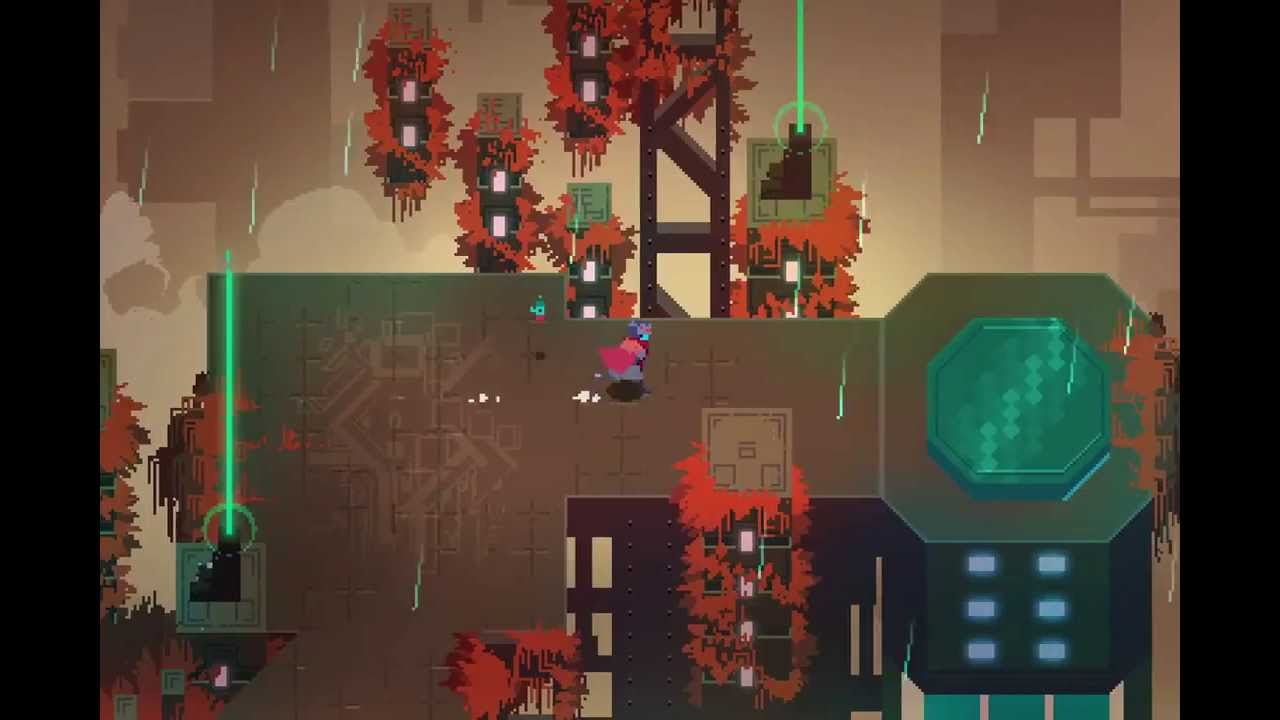
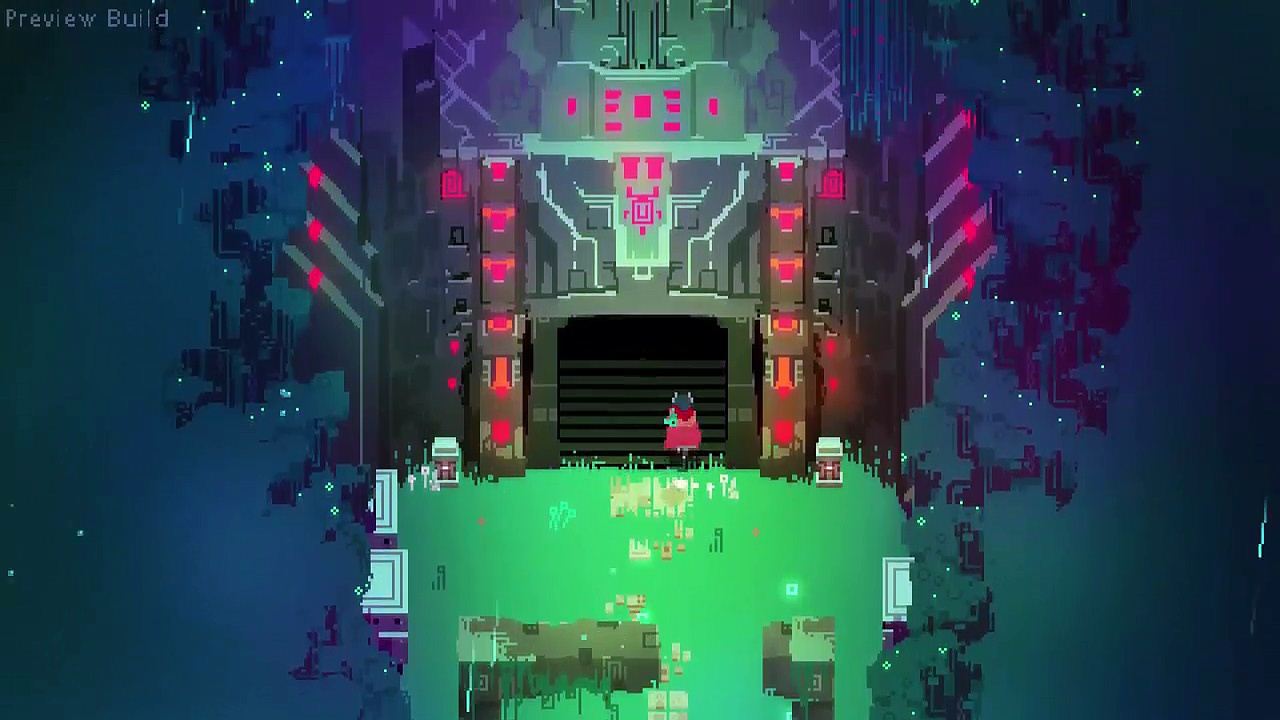
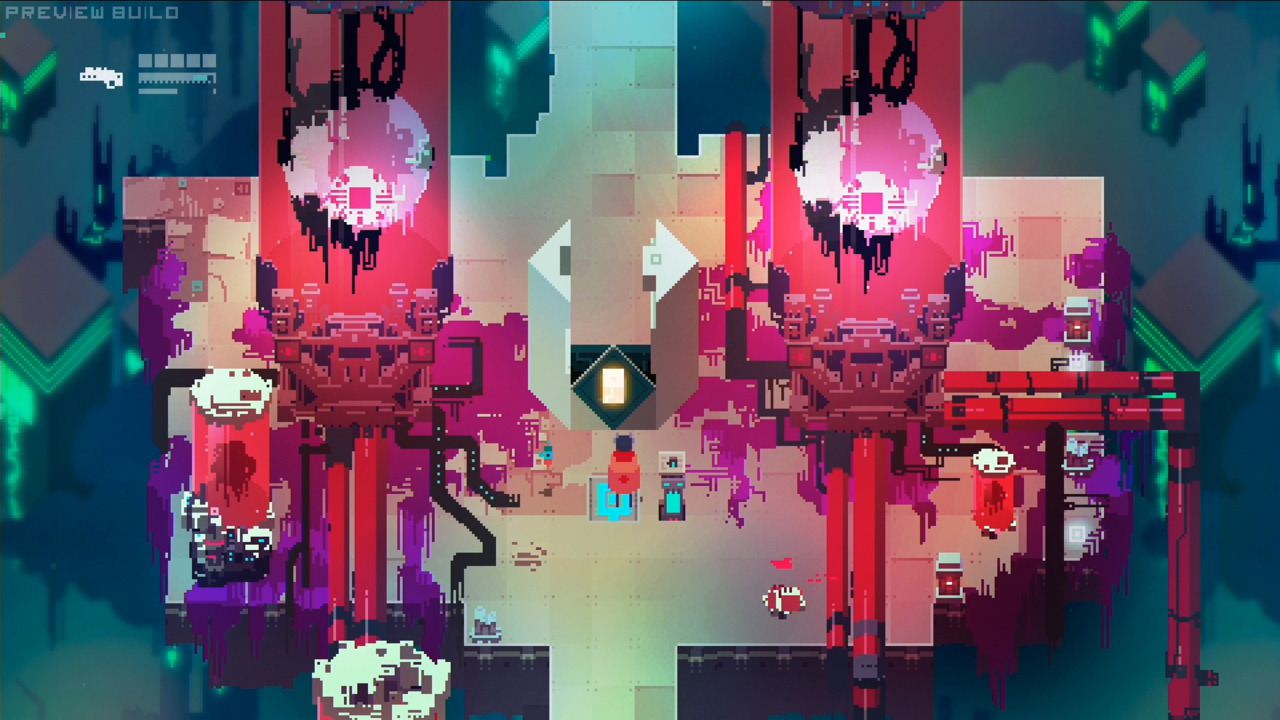
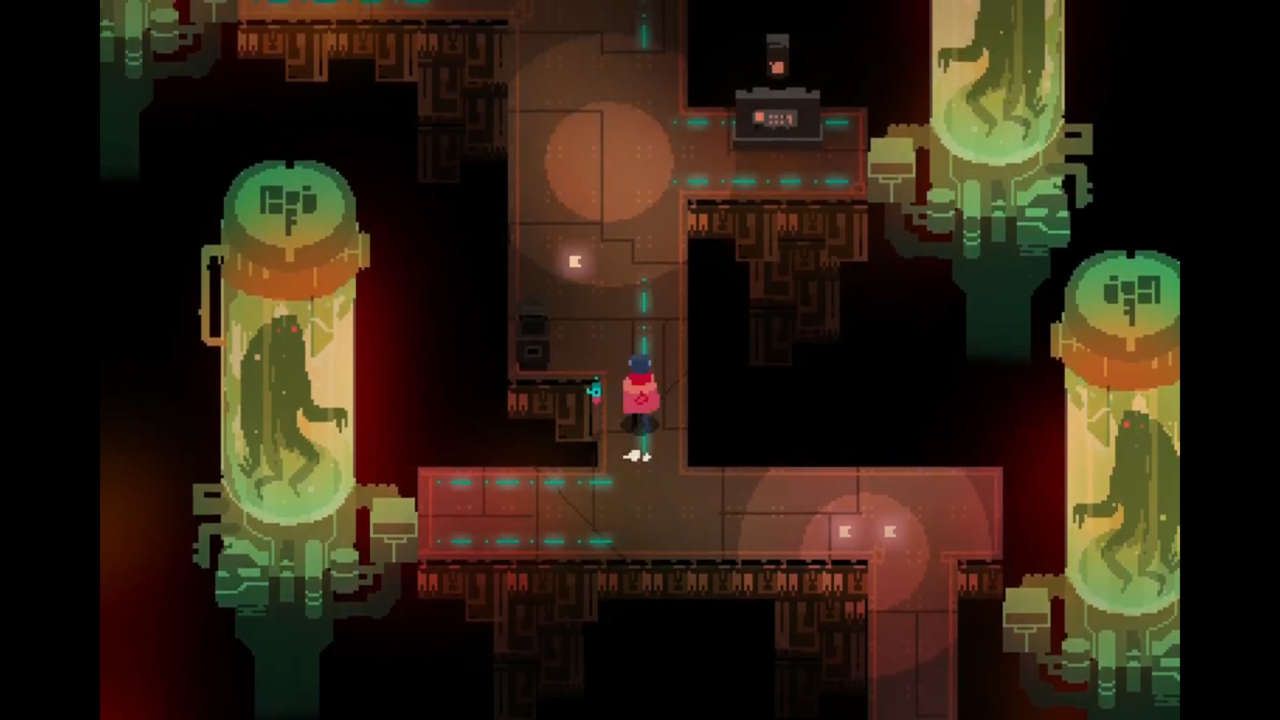


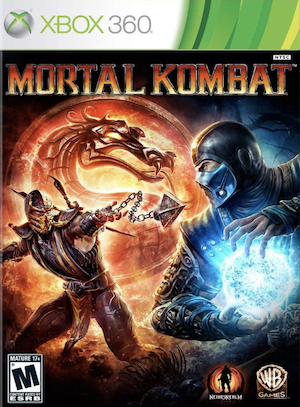
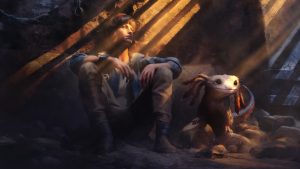

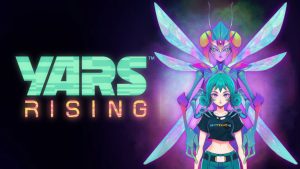
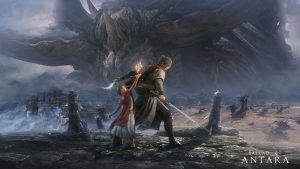
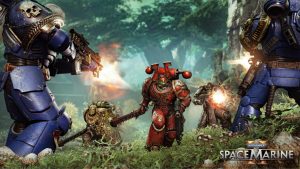

Share Your Thoughts Below (Always follow our comments policy!)